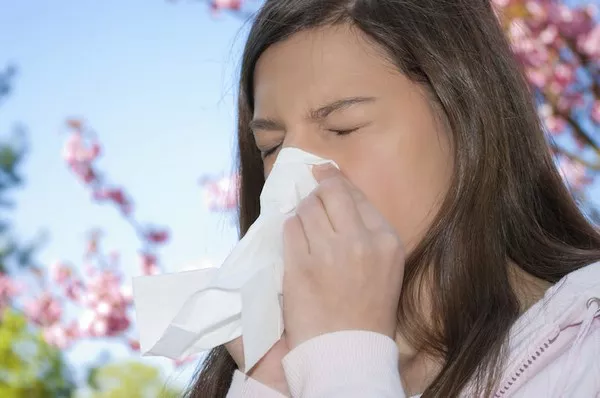Allergies are a common concern for many individuals, affecting millions worldwide. While allergens like pollen, dust mites, and pet dander are widely recognized, there are lesser-known allergens, including white ash. White ash allergy, although not as prevalent as some other allergies, can significantly impact those who are sensitive to it. In this article, we’ll explore white ash allergy, its causes, symptoms, and management strategies.
White Ash Allergy: What is It?
White ash, scientifically known as Fraxinus americana, is a deciduous tree native to North America. It is often found in a variety of landscapes, including urban and forested areas. While white ash trees are valued for their timber and ornamental qualities, they can also be a source of allergenic pollen.
White ash pollen is known to trigger allergic reactions in susceptible individuals. This pollen is typically released during the spring, primarily from March to April, depending on the geographical location. White ash trees produce small, wind-borne pollen grains that can be carried over long distances, making it a potential allergen concern for a broader population.
Causes of White Ash Allergy
White ash allergy, like other pollen allergies, is a result of the body’s immune system overreacting to the presence of pollen particles. When a person with white ash allergy comes into contact with white ash pollen, their immune system identifies it as a threat. In response, the body releases histamines and other chemicals to counter the perceived threat, leading to allergy symptoms.
While the exact cause of allergies remains a subject of ongoing research, several factors can increase the risk of developing white ash allergy:
Genetic Predisposition: Individuals with a family history of allergies are more likely to develop allergies, including white ash allergy.
Environmental Exposure: Living in or near areas with a high density of white ash trees can increase the risk of exposure to white ash pollen.
Prior Allergies: Individuals with existing allergies, such as hay fever or asthma, may be more prone to developing additional allergies, including white ash allergy.
Immune System Sensitivity: Some people have immune systems that are more sensitive and reactive to allergens.
Symptoms of White Ash Allergy
White ash allergy can manifest in a range of symptoms, which can vary in severity from mild to severe. Common symptoms of white ash allergy include:
Sneezing: Frequent and uncontrollable sneezing is a typical response to allergen exposure.
Runny or Stuffy Nose: The nasal passages may become congested or produce excessive mucus.
Itchy or Watery Eyes: Itchiness and excessive tearing of the eyes are common allergy symptoms.
Coughing: Allergic coughing may be persistent, especially during pollen season.
Sore Throat: The throat may become irritated, leading to discomfort or soreness.
Fatigue: Allergies can be draining, causing fatigue and reduced energy levels.
Wheezing: Some individuals may experience wheezing or shortness of breath, particularly if they have underlying respiratory conditions like asthma.
Skin Reactions: Skin reactions such as hives or eczema can occur, especially in more severe cases.
It’s important to note that the severity and combination of symptoms can vary among individuals. While some may experience mild discomfort, others may face significant challenges in managing their white ash allergy symptoms.
Diagnosing White Ash Allergy
If you suspect you have a white ash allergy, it’s advisable to seek a proper diagnosis from an allergist or immunologist. The diagnostic process often includes:
Medical History: Your healthcare provider will inquire about your medical history, including any allergies or family history of allergies.
Physical Examination: A physical examination may help identify allergy-related symptoms.
Allergy Testing: Allergy testing, such as skin prick tests or blood tests (specifically for white ash pollen antibodies), can confirm the presence of white ash allergy.
Once diagnosed, you can work with your healthcare provider to develop a management plan for your white ash allergy.
Management and Treatment
Managing white ash allergy involves a combination of avoidance strategies, medication, and, in some cases, allergen immunotherapy. Here are key management approaches:
Allergen Avoidance:
Monitor pollen forecasts to be aware of peak pollen times.
Keep windows closed during high pollen seasons.
Use high-efficiency particulate air (HEPA) filters in your home and car.
Shower and change clothes after spending time outdoors to remove pollen from your body and clothing.
Medication:
Antihistamines: Over-the-counter or prescription antihistamines can help relieve symptoms such as sneezing, runny nose, and itching.
Decongestants: Decongestants can reduce nasal congestion.
Nasal Corticosteroids: These prescription medications can alleviate nasal inflammation and congestion.
Allergy Shots: Allergen immunotherapy, commonly known as allergy shots, may be recommended for individuals with severe white ash allergies. This treatment involves gradually exposing the body to the allergen to build tolerance.
Symptom Monitoring: Keep track of your symptoms, triggers, and medication use to better manage your allergy.
Consultation: Regularly consult with your healthcare provider or allergist to discuss symptom management, medication adjustments, and the progress of your allergy treatment.
Conclusion
White ash allergy is a specific type of pollen allergy that can cause various symptoms, affecting those exposed to white ash pollen during its peak season. While it may not be as common as some other allergies, it can significantly impact the quality of life for those who experience it.
If you suspect you have a white ash allergy, seeking a proper diagnosis and working with a healthcare provider can help you develop a management plan tailored to your needs. Through allergen avoidance, medication, and, in some cases, allergen immunotherapy, individuals with white ash allergies can effectively manage their symptoms and enjoy a better quality of life, even during pollen season.


